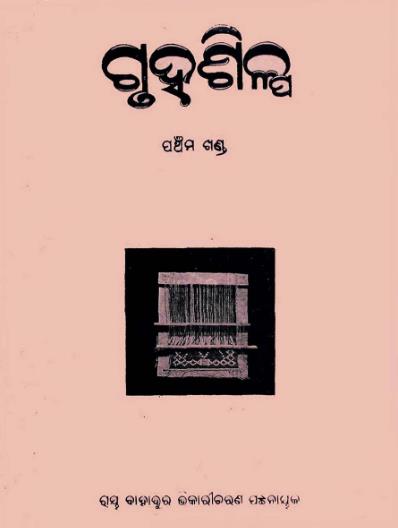Published in 1940, Gruhashilpa Part-5 by Bhikari Charana Patnaik stands as a testament to the enduring value of domestic arts in Odia culture. This volume continues the discourse begun in earlier editions, meticulously exploring various aspects of household management, traditional crafts, and culinary practices that are integral to daily life. Patnaik’s work is not merely instructional; it is a celebration of the artistry involved in homemaking, positioning it as both an essential skill and a cultural heritage.
Gruhashilpa Part-5 serves as a comprehensive guide for readers interested in enhancing their domestic skills. The book covers a wide array of topics, from advanced cooking techniques and seasonal recipes to intricate handmade crafts and household management strategies. Patnaik’s structured approach ensures that readers can follow along easily, encouraging them to apply the lessons in their own homes.
The volume is written in a clear and accessible style, making it approachable for both novice homemakers and those looking to refine their skills further. The inclusion of illustrations alongside detailed instructions helps readers visualize the processes, making it easier to execute the activities with confidence.
One of the prominent themes in this volume is the focus on traditional Odia crafts and their cultural significance. Patnaik delves into various artisan skills, such as handloom weaving, pottery, and decorative arts. He emphasizes the importance of these crafts not only as a means of creating functional household items but also as expressions of cultural identity and artistic heritage. By encouraging readers to engage with these crafts, Patnaik fosters a deeper appreciation for the traditional skills that define Odia culture.
Additionally, the culinary section of Gruhashilpa Part-5 is a remarkable highlight. Patnaik provides an assortment of recipes that reflect the rich flavors and ingredients native to Odisha. He emphasizes the significance of using fresh, local produce and traditional cooking methods, promoting a connection to the land and the community. The recipes are presented with attention to detail, ensuring that readers can recreate the dishes authentically, thus keeping cultural traditions alive through food.
A recurring theme throughout Gruhashilpa Part-5 is the empowerment of women within the domestic sphere. Patnaik recognizes the vital role women play in managing households and nurturing families. By providing practical guidance on various domestic activities, he instills a sense of pride and responsibility in the reader, encouraging women to embrace their roles with confidence.
This volume acts as both a manual and a source of inspiration, highlighting the potential of domestic arts as a pathway to greater self-reliance. Patnaik’s commitment to empowering women through education is evident, as he presents homemaking not just as a necessary chore but as a valuable and respected profession.
Gruhashilpa Part-5 also reflects the socio-cultural landscape of Odisha during the early 20th century. Patnaik addresses the evolving dynamics within families and the growing recognition of women’s contributions to home and society. By documenting these changes, he provides readers with a historical perspective on the significance of domestic skills in maintaining cultural continuity.
The book serves as a cultural repository, preserving traditional practices and encouraging readers to keep these traditions alive amidst modernization. Patnaik’s emphasis on community values, family ties, and the celebration of local customs reminds readers of the richness of their cultural heritage.
Books Info
| Books name | Gruhashilpa Part-5 / ଗୃହଶିଳ୍ପ |
| Author | Bhikari Charana Patnaik |
| No Of pages | 71 |
| Publisher | NA |
| Publication | 1959 |
| Printed At | NA |
| Distributor | NA |

